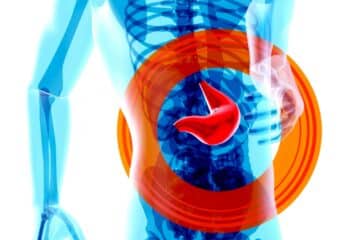Acupuncture and Chinese Herbal Medicine: Your Natural Allies in the Journey to Parenthood
Imagine trying to start a family, but it feels like waiting for a bus that never shows up. Frustrating, right? For many couples facing fertility challenges, the journey can feel like an uphill climb. While modern medicine offers incredible tools like in vitro fertilization (IVF), sometimes you need a little extra help to get that bus moving. That’s where acupuncture and Chinese herbal medicine come in—ancient practices that have been helping people for centuries, now backed by modern research. In this article, we’ll dive into how these treatments can support your fertility journey, answer your burning questions, and sprinkle in a bit of humor to keep things light. Ready to explore? Let’s get started!
What Is Acupuncture, and Why Should You Care?
Picture this: tiny needles, thinner than a strand of hair, gently placed at specific points on your body to help it work better. That’s acupuncture in a nutshell! Rooted in Chinese Medicine, acupuncture is based on the idea that your body has energy pathways called meridians, through which “Qi” (pronounced “chee”) flows. When Qi gets stuck, it’s like a traffic jam in your body, causing all sorts of issues, including fertility problems.
So, how does acupuncture help you conceive? It’s like giving your reproductive system a tune-up. Here’s what it does:
- Boosts Blood Flow: Acupuncture can increase circulation to your ovaries and uterus, creating a cozy environment for eggs and embryos. Think of it as rolling out the red carpet for conception!
- Balances Hormones: It may help regulate hormones like follicle-stimulating hormone (FSH) and luteinizing hormone (LH), which are key players in ovulation and pregnancy.
- Reduces Stress: Trying to conceive can be as stressful as a high school math test. Acupuncture is known for its calming effects, helping lower stress hormones that can mess with fertility.
But does it really work? The science is promising but not definitive. A 2022 meta-analysis of 27 studies found that acupuncture increased live birth rates by 34% and clinical pregnancy rates by 43% in women undergoing fertility treatments, especially IVF (PMC8865966). However, some studies, like one from the Cleveland Clinic, note that the evidence isn’t conclusive, and results can vary (Cleveland Clinic). It’s like betting on a horse that’s won a few races but hasn’t clinched the championship yet.
What’s the Deal with Chinese Herbal Medicine?
If acupuncture is like rebooting your body’s computer, Chinese herbal medicine is like giving it a custom-made nutrient boost. TCM uses over 6,000 herbs, combined into personalized formulas to address your specific needs. These aren’t your average backyard weeds—think roots, leaves, and seeds like Rehmanniae Radix or Goji berries, carefully selected to support your health.
For fertility, Chinese herbs aim to:
- Nourish Your Body: Herbs provide essential nutrients to support overall reproductive health.
- Balance Hormones: They can help regulate menstrual cycles and improve egg or sperm quality.
- Address Root Causes: Conditions like polycystic ovary syndrome (PCOS) or endometriosis can be managed with herbs to improve fertility odds.
The evidence? A 2020 overview of 21 systematic reviews found that Chinese herbal medicine, especially when paired with conventional treatments, improved clinical pregnancy rates significantly. For example, one study reported a 74% higher pregnancy rate with herbs plus biomedicine compared to biomedicine alone (PMC7903059). A case study even showed a woman in her 40s with diminished ovarian reserve (DOR) achieving two live births after using a formula called “Fu Kun Tang” (ScienceDirect). It’s like giving your body a personalized fertility smoothie—without the kale!
How Do Acupuncture and Herbs Team Up?
Acupuncture and Chinese herbal medicine are like the dynamic duo of fertility treatments. Acupuncture works on your body’s energy flow, while herbs provide physical support. Together, they tackle both the symptoms (like irregular periods) and root causes (like hormonal imbalances) of infertility. For example, acupuncture might improve blood flow to your uterus, while herbs strengthen the uterine lining, making it more welcoming for an embryo.
A 2015 study on whole systems TCM (which includes acupuncture, herbs, and lifestyle advice and is the kind that is found at Acupuncture & Holistic Health Associates) found that it doubled the odds of live births in IVF patients compared to IVF alone (PubMed 25911598). It’s like having a personal trainer and a nutritionist working together to get your body in top shape for pregnancy.
What Can You Expect During Treatment?
Curious about what it’s like to try these treatments? Let’s break it down:
Acupuncture Sessions
- Initial Consultation: Your practitioner will ask about your health, lifestyle, and fertility journey. It’s like a job interview with your acupuncturist—lots of questions to get to know you!
- The Session: You’ll lie down, and the practitioner will insert thin needles into specific points. Don’t worry, it’s not like being a human pincushion—most people feel only a slight pinch or nothing at all. The needles stay in for 20-30 minutes while you relax, maybe even catch a quick nap.
- Frequency: Expect at least weekly sessions, if not more, for 3-6 months, especially if you’re preparing for IVF or intrauterine insemination (IUI).
Chinese Herbal Medicine
- Custom Formulas: Your practitioner will prescribe a mix of herbs tailored to your needs, often as teas, capsules, or powders. It might taste like earthy soup, but it’s worth it!
- How to Take It: You’ll typically take herbs daily, with instructions on timing (e.g., before or after meals). Follow the plan closely for the best results.
- Safety: Herbs are generally safe when prescribed by a qualified practitioner, but always ensure they come from reputable sources to avoid contamination or allergies.

Photo by Febe Vanermen on Unsplash
Both treatments are low-risk, but minor side effects like bruising from needles or mild digestive upset from herbs can occur. Always tell your doctor about any complementary treatments you’re using to avoid interactions.
Common Questions About Acupuncture and Chinese Herbal Medicine
Let’s tackle some questions you might have, because who doesn’t love a good Q&A?
- How long does it take to see results? Patience is key! Some people notice changes in their menstrual cycles or stress levels within a few weeks, but it often takes 3-6 months for significant fertility improvements. Your body’s like a garden—it needs time to bloom.
- Can I use these treatments with IVF or IUI? Absolutely! Many studies, like the 2015 one mentioned earlier, show that combining TCM with IVF can boost success rates. Just make sure your fertility doctor and TCM practitioner are on the same page.
- Are there risks involved? Acupuncture is overwhelmingly safe, with rare side effects like bruising or soreness. Herbs are safe when prescribed correctly, but you should avoid self-medicating—leave it to the pros to avoid any mix-ups.
- How do I find a qualified practitioner? Look for licensed acupuncturists with experience in fertility. Check credentials, read reviews, and ask if they coordinate with fertility clinics. It’s like choosing a good chef—you want someone who knows their craft!
- Can men benefit from these treatments? Yes! About half of infertility cases involve male factors. Acupuncture and herbs can improve sperm count and motility, giving those little swimmers a better shot (East Meets West Fertility).
The Science Behind It: What Do Studies Say?
Let’s dive into the research to see what’s out there. The good news? There’s evidence that these treatments can help, but it’s not a done deal. Here’s a quick look:
| Treatment | Key Findings | Source |
|---|---|---|
| Acupuncture | A 2022 meta-analysis of 27 studies showed a 34% increase in live birth rates and a 43% increase in clinical pregnancy rates, especially with IVF. However, results were less clear compared to sham acupuncture. | PMC8865966 |
| Chinese Herbal Medicine | A 2020 review found herbs improved pregnancy rates by up to 74% when combined with biomedicine, particularly for PCOS and anovulation. | PMC7903059 |
| Whole Systems TCM | A 2015 study found that combining acupuncture, herbs, and lifestyle advice doubled live birth odds in IVF patients. | PubMed 25911598 |
| Diminished Ovarian Reserve | A 2023 meta-analysis showed acupuncture lowered FSH levels and increased AMH and antral follicle counts in women with DOR. | Frontiers |
However, some experts, like those at the Cleveland Clinic, caution that the evidence isn’t conclusive, and more rigorous studies are needed. It’s like trying to solve a puzzle with a few missing pieces—promising, but not complete.
Specific Conditions and Chinese Medicine
TCM shines in addressing specific fertility challenges:
- Polycystic Ovary Syndrome (PCOS): Herbs and acupuncture can regulate menstrual cycles and promote ovulation, with studies showing up to a 2.62 times higher pregnancy rate when combined with clomiphene (PMC7903059).
- Endometriosis: Herbs can reduce pelvic pain and improve fertility by enhancing blood flow to the uterus (East Meets West Fertility).
- Diminished Ovarian Reserve (DOR): A case study showed a woman in her 40s with DOR achieved two live births with herbs, and acupuncture improved AMH levels (ScienceDirect).
- Male Factor Infertility: Acupuncture and herbs can boost sperm quality, with studies showing improved motility and count (East Meets West Fertility).
The Role of Diet and Lifestyle
In Chinese Medicine, what you eat and how you live matters. Foods are seen as warming or cooling, and balance is key for fertility. For example:
- Warming Foods: Lean proteins, spices, and cooked veggies support Qi and reproductive health.
- Cooling Foods: Fruits and vegetables help balance excess heat in the body.
- Foods to Avoid: Sugar, dairy, and cold raw foods (like smoothies) can disrupt hormonal balance (Yinova Center).
Lifestyle tips include reducing stress, getting enough sleep, and avoiding excessive caffeine or alcohol. It’s like giving your body a fertility-friendly makeover!
Finding the Right Practitioner
Choosing a practitioner is crucial. Look for:
- Licensing: Ensure they’re certified by a recognized body, like the National Certification Commission for Acupuncture and Oriental Medicine (NCCAOM).
- Experience: Ask about their success with fertility cases.
- Communication: They might work with your fertility doctor to coordinate care.
You can find practitioners through fertility clinics, online directories, or recommendations. It’s like picking a teammate for your fertility journey—choose wisely!
Real Stories, Real Hope
Consider Jane, a 35-year-old who struggled with irregular cycles due to PCOS. After three months of acupuncture and herbs, her cycles became regular, and she conceived naturally. Or take Mike, whose low sperm motility improved after six months of acupuncture, leading to a successful IUI. These stories, inspired by real case studies, show the potential of acupuncture and herbs to make a difference (ScienceDirect).
Wrapping It Up
Acupuncture and Chinese herbal medicine offer a natural, holistic way to support your fertility journey. They can improve blood flow, balance hormones, and reduce stress, potentially boosting your chances of conception. While the science is still evolving, many couples have found success, especially when combining acupuncture and herbs with conventional treatments like IVF. If you’re feeling stuck, why not give it a try? Talk to your doctor, find a qualified practitioner, and take the first step. Your path to parenthood might just be paved with needles and herbs!
Citations
- Looking to Boost Fertility? Chinese Medicine Can Help | The Yinova Center
- Acupuncture for Fertility: Does It Really Work? – Cleveland Clinic
- Acupuncture as Treatment for Female Infertility: A Systematic Review and Meta-Analysis of Randomized Controlled Trials – PMC
- Successful live births after Chinese herbal medicine treatment on a patient of advanced maternal age with severe diminished ovarian reserve – ScienceDirect
- Acupuncture and herbal medicine for female infertility: an overview of systematic reviews – PMC
- Impact of whole systems traditional Chinese medicine on in-vitro fertilization outcomes – PubMed
- Clinical efficacy of acupuncture for diminished ovarian reserve: a systematic review and meta-analysis of randomized controlled trials – Frontiers
- Optimizing Fertility with Acupuncture and Chinese Medicine — East Meets West Fertility


